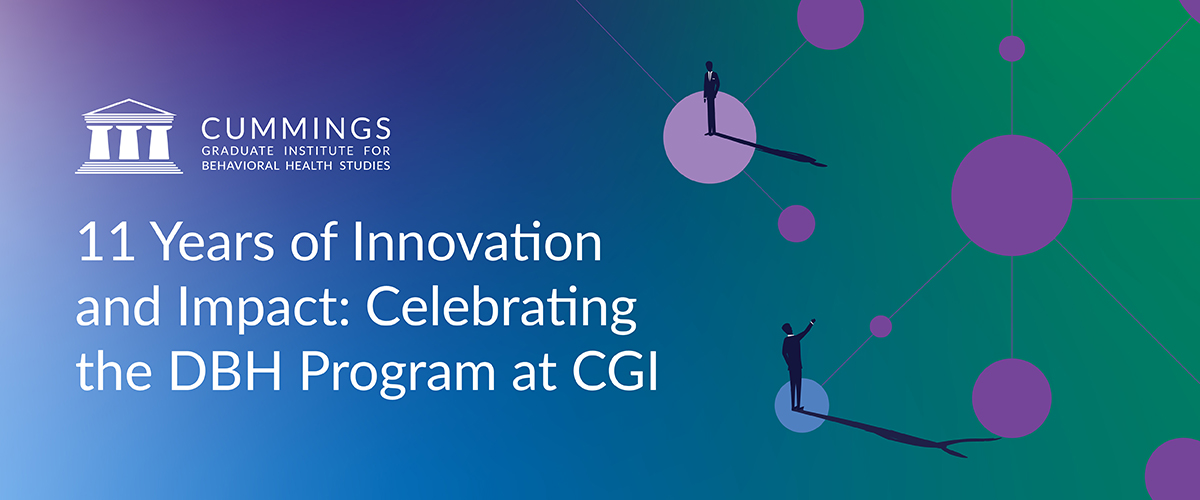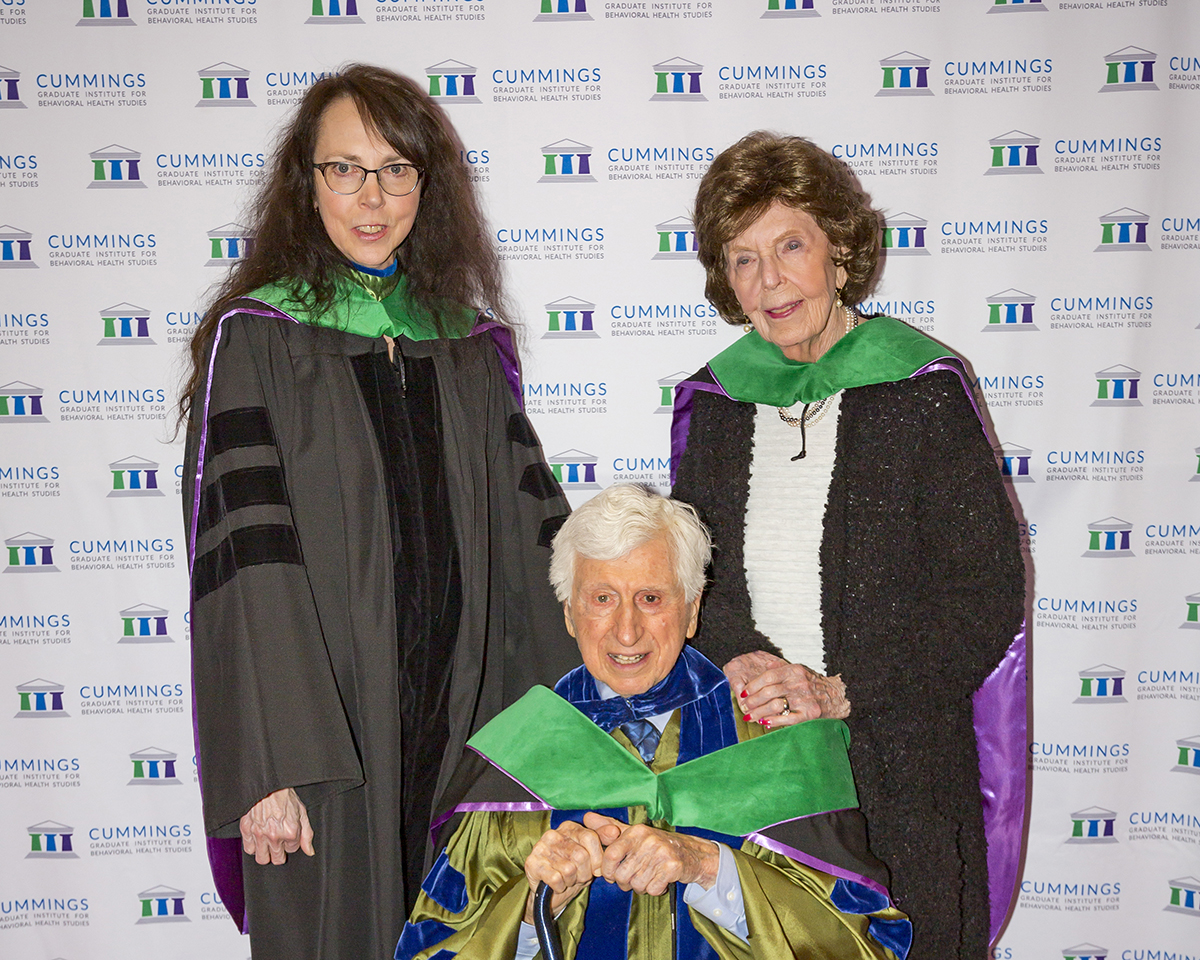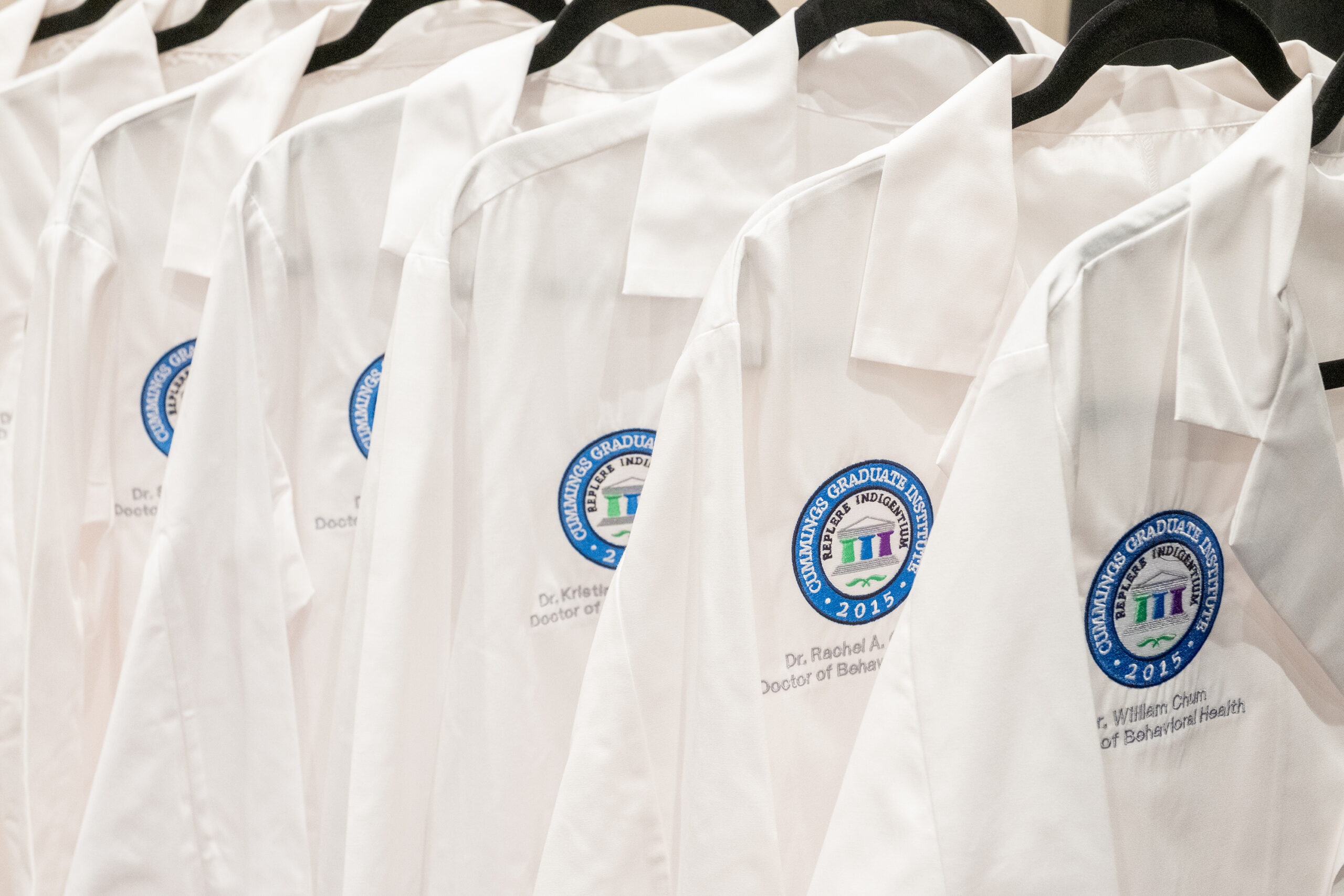
By: Dr. U. Grant Baldwin Jr., DBH, Director of the Doctor of Behavioral Health Program
A Legacy of Vision and Purpose
As we reflect on 11 remarkable years of the Doctor of Behavioral Health (DBH) program at the Cummings Graduate Institute for Behavioral Health Studies (CGI), I am filled with gratitude and pride. What began as a bold vision to advance integrated behavioral healthcare has evolved into a thriving global community of scholar-practitioners, innovators, and leaders. Each year, I have had the privilege of witnessing our students, alumni, and faculty carry forward the DBH mission transforming healthcare systems, strengthening communities, and improving the lives of countless individuals.
The past 11 years have taught us much about perseverance, collaboration, and the power of purpose-driven education. The lessons we have learned together shape not only who we are as an institution, but who we continue to become. As we celebrate this milestone, we honor the collective effort that has brought the DBH program to this moment and look forward to an even more impactful future.
Honoring the Visionaries Who Made It Possible
I am filled with gratitude, pride, and deep respect for the visionaries and leaders who have made this journey possible. The program’s existence and success are a testament first and foremost to the foresight and commitment of Dr. Nick Cummings and Dr. Janet Cummings, whose vision to found and establish CGI created a foundation for innovation, excellence, and the advancement of integrated behavioral healthcare. Thier pioneering spirit laid the groundwork for an institute that nurtures leaders capable of transforming healthcare systems, communities, and the lives of patients.

Dr Janet Cummings, Dr. Nicholas A. Cummings, and Dorothy Cummings at the 2020 DBH Commencement Ceremony
I also want to honor Dr. Cara English, our fearless CEO and CAO, whose guidance, strategic insight, and steadfast dedication have propelled CGI forward. Her leadership inspires all of us to innovate, collaborate, and continuously elevate the quality and reach of our programs.
Finally, I extend heartfelt recognition to my colleagues, faculty, and staff who work tirelessly and closely together every day to advance our mission. Your dedication, expertise, and collaboration embody the spirit of CGI, ensuring that our program not only endures but thrives, continuing to push boundaries, build knowledge, and expand the impact of behavioral health integration.
Building a Movement, Not Just a Program
The past 11 years have been a journey of vision, resilience, and collective commitment. Each lesson learned, challenge overcome, and milestone achieved reflects the dedication of everyone who has contributed to the DBH program’s legacy. Together, we have built more than a program we have built a movement.
As CGI commemorates the 11th anniversary of the DBH program, we celebrate a legacy defined by vision, innovation, and service. What began as a pioneering response to fragmented healthcare has become a transformative force, shaping leaders who integrate behavioral health into every level of care. The DBH program continues to prepare practitioner-scholars capable of bridging clinical, operational, and systemic divides, empowering them to improve access, quality, and outcomes across the healthcare spectrum.
As we look back, we honor both our achievements and the invaluable lessons learned along the way each one a testament to our shared commitment to advancing integrated behavioral healthcare.
Integrated behavioral healthcare is no longer optional; it is essential. The growing prevalence of chronic conditions, trauma, and mental health challenges underscores the need for comprehensive, team-based care. The DBH program stands at the forefront of this movement, equipping leaders to design systems that honor the inseparable connection between mind and body. Our graduates embody this philosophy, leading efforts that improve outcomes, reduce disparities, and bring compassion back to healthcare.
Education That Fuels Systemic Change
From its inception, the DBH program has been guided by a powerful vision: to educate leaders who drive systemic change. Every component of the program, its courses, its mentorship, and its community reflects the belief that vision fuels transformation. This vision has inspired graduates to take on leadership roles in organizations, shape healthcare policy, and champion equity in behavioral health access.
The DBH program embraces innovation as a catalyst for progress. Our curriculum fosters entrepreneurial thinking, encouraging students to challenge convention, identify unmet needs, and design creative, evidence-based solutions. Graduates emerge not only as clinicians but as innovators launching programs, founding consulting firms, and leading organizational change that improves care delivery and sustainability.
The DBH curriculum continues to evolve to meet the demands of an ever-changing healthcare landscape. Grounded in systems thinking, quality improvement, and leadership development, it equips students to address the complex realities of healthcare reform. By integrating applied learning and real-world problem solving, the curriculum ensures that every DBH graduate enters the field prepared to lead with confidence, competence, and compassion.

DBH White Coats at a DBH Commencement Ceremony
Community, Mentorship, and Support
One of the greatest strengths of the DBH program lies in its commitment to student support. We understand that doctoral education is as much an emotional and personal journey as it is an academic one. Through mentorship, academic advising, and individualized engagement, students are guided by faculty who genuinely care about their success. This supportive culture fosters resilience, personal growth, and lifelong commitment to professional excellence.
The DBH program thrives because it is built upon a community of learners who teach and teachers who learn. Faculty, students, and alumni engage as collaborators in a shared pursuit of knowledge and innovation. This community fosters intellectual exchange, collegiality, and professional identity, enabling each member to contribute meaningfully to the advancement of integrated behavioral health practice.
The evolution of the DBH program reflects the collective wisdom of its participants. Our students bring rich professional backgrounds and diverse experiences that enrich the classroom. Faculty members offer mentorship, leadership, and expertise that bridge scholarship and practice. And our alumni, now leaders across healthcare systems, continue to inspire new generations of DBH students. Together, they have shaped a program that grows stronger with every cohort.
Integrated behavioral health thrives on collaboration. The DBH program emphasizes systems thinking as a core competency, training leaders to see beyond individual silos and engage across disciplines. Our graduates work alongside physicians, nurses, administrators, and policymakers to co-design systems that are efficient, patient-centered, and equitable. This approach reflects the very essence of integration: collective expertise in service of whole-person care.
A Living Legacy: Our Alumni
Our alumni are the living legacy of the DBH program. They lead behavioral health initiatives, influence policy, and bring integration into diverse care settings. Their work sends ripples across systems, improving access, reducing costs, and elevating standards of care. Each story of success affirms the DBH program’s mission and demonstrates how one practitioner’s leadership can transform an entire organization or community.

Dr. U Grant Baldwin Jr. addresses DBH Graduates at the 2024 DBH Commencement Ceremony
Looking Ahead: The Next Chapter
No journey is without its challenges, and the DBH program’s growth has been marked by moments of reflection and reinvention. Policy shifts, technological advancements, and societal changes have all tested our adaptability. Yet, each challenge has strengthened our resolve and refined our approach. Through resilience, open dialogue, and a shared commitment to excellence, the program has emerged stronger, more focused, more inclusive, and more innovative than ever before.
As healthcare continues to evolve, the DBH program remains future-focused. We are preparing the next generation of leaders who will navigate emerging technologies, advocate for behavioral health equity, and guide the integration of care across systems. Our graduates will continue to bring empathy, intelligence, and creativity to the forefront of healthcare reform, ensuring that the DBH legacy not only endures but expands.
The Journey Continues
The story of the DBH program is one of continuous growth and transformation.
For 11 years, CGI has been guided by the principle that innovation in behavioral health is not just about systems, it’s about people.
As we look ahead, we remain committed to advancing our mission through education, research, and leadership that empowers change.
Together with our students, alumni, and faculty, we will continue to shape a future where integrated behavioral healthcare is not an aspiration, but a standard. The next decade promises continued growth, deeper collaboration, and an unwavering dedication to improving lives through integration, compassion, and evidence-based leadership.
The journey continues, and the best chapters are still ahead. 😎






























